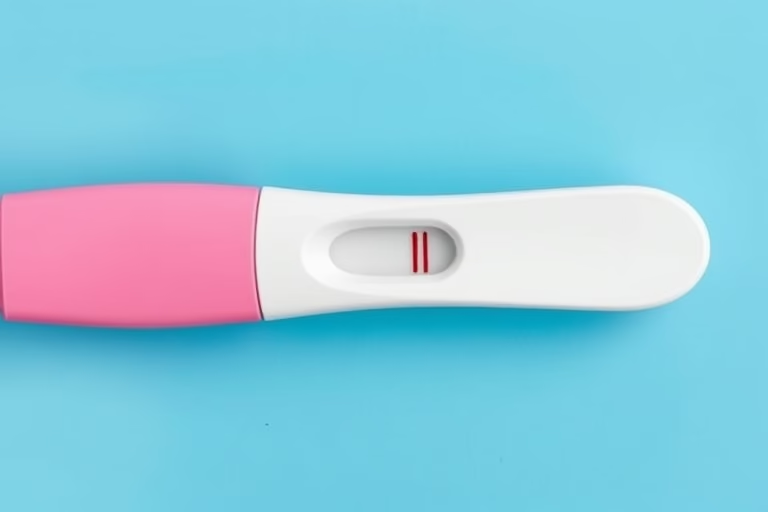Understanding After Implantation Bleeding Pregnancy Test Negative
The topic of after implantation bleeding and a negative pregnancy test is essential for anyone trying to conceive. After implantation, a woman may experience a light spotting known as implantation bleeding. Typically occurring 6 to 12 days after conception, this event signifies that a fertilized egg has attached itself to the uterus. While many might expect a positive pregnancy test following this occurrence, it is entirely possible to receive a negative result. The negative result can stem from various factors, including the timing of the test, hormonal levels, and individual variations in the body. This topic will clarify these concepts, why they happen, and what they mean for anyone attempting to understand their reproductive health.
What is Implantation Bleeding?
Implantation bleeding refers to light spotting that occurs when the fertilized egg attaches itself to the uterine lining, which generally happens about a week to ten days after fertilization. The spotting might be confused with a regular menstrual period, but it is typically lighter in color and quantity.
Recognizing implantation bleeding involves understanding its characteristics:
- Color: Generally pink or brown rather than bright red.
- Flow: Very light, usually not requiring a pad or tampon.
- Duration: Lasts only a few hours to a couple of days.
Many women may not connect this phenomenon with pregnancy, leading to confusion when they take a pregnancy test afterwards.
Why Negative Pregnancy Test? Timing Matters
One significant reason for getting a negative result on a pregnancy test is related to timing. Pregnancy tests work by detecting the hormone human chorionic gonadotropin (hCG) in urine, a hormone produced after implantation occurs.
If a test is taken too soon, there may not be enough hCG in the system to yield a positive result. This could be particularly true if implantation bleeding has just occurred. If a woman takes a test right after the bleeding, the hormone levels may still be too low to detect.
To increase the chance of getting accurate results:
- Wait at least a week after the expected date of your period.
- Consider taking the test first thing in the morning when urine concentration is higher.
The Role of Hormones in Pregnancy Testing
Hormones play a crucial role in the conception journey. After implantation, the body begins to produce hCG, which is essential for early pregnancy tests. However, hormone levels can vary significantly among women and even between different pregnancies.
In some cases, a woman may have a lower than expected hCG level. Low hCG could result from several factors:
- Miscalculated ovulation and implantation dates.
- Chemical pregnancies: These are very early miscarriages that occur shortly after implantation.
- Possible ectopic pregnancy: This occurs when the embryo implants outside the uterus.
Understanding these factors is central to interpreting pregnancy test results accurately.
Other Possible Reasons for After Implantation Bleeding and Negative Tests
There are various reasons a woman may experience implantation bleeding without a positive pregnancy test:
- Menstrual Cycle Variability: Some women may have unusual cycle patterns where they experience symptoms similar to pregnancy.
- Hormonal Imbalance: Conditions such as polycystic ovary syndrome (PCOS) or other underlying issues can affect hormone levels.
- Stress: High levels of stress can lead to missed periods or irregular spotting.
Therefore, if you experience bleeding after implantation but receive a negative test, it can lead to confusion. Consulting a healthcare provider can be beneficial to clarify these symptoms.
Symptoms To Watch For Following Implantation Bleeding
After noticing implantation bleeding, certain symptoms can suggest the possibility of pregnancy:
- Nausea and Morning Sickness: Common among early pregnant women.
- Fatigue: Increased tiredness due to hormonal changes.
- Breast Changes: Swelling or tenderness can occur as the body adjusts to pregnancy.
Each woman’s experience can vary, and these symptoms can be seen in various conditions. Therefore, awareness is vital.
When to Consult a Doctor
If you experience ongoing symptoms or periods that seem irregular following implantation bleeding, it is wise to consult a doctor. Medical advice is particularly crucial if:
- Bleeding becomes heavy or is accompanied by cramping.
- You have a history of issues related to pregnancy.
- Your symptoms persist long after implantation bleeding.
Doctors can provide further testing and insights into your hormonal levels and physical health.
Final Thoughts
Understanding the connection between after implantation bleeding and a negative pregnancy test can help alleviate concerns for many women trying to conceive. Recognizing the signs of implantation bleeding versus regular menstrual symptoms is the first step towards clarity. The timing of pregnancy tests plays a critical role in obtaining accurate results. Hormonal levels fluctuate and do not always correspond with expectations, making it crucial for women to educate themselves about their bodies and situations. Awareness of other reasons for unexpected symptoms can help reduce stress and confusion, as various factors can lead to a negative test. Consulting with healthcare professionals can provide additional context and assistance in navigating these circumstances.
In conclusion, the experience of after implantation bleeding followed by a negative pregnancy test can be bewildering. However, understanding the underlying concepts and possible explanations can guide women in making informed decisions about their reproductive health.
Frequently Asked Questions
1. Can implantation bleeding occur without pregnancy?
Yes, some women can experience spotting due to hormonal changes or other reasons that don’t indicate pregnancy.
2. How long after implantation bleeding should I wait to take a pregnancy test?
It is advisable to wait at least a week after the expected date of your period for the most accurate results.
3. What if I miss my period after experiencing implantation bleeding?
Missing a period alongside other pregnancy symptoms may prompt you to retest or consult a doctor.
4. How common is implantation bleeding?
Implantation bleeding occurs in about one-third of pregnancies.
5. Can I experience multiple implantation bleedings?
No, typically, implantation bleeding occurs only once in a pregnancy.
Further Reading
What Type of Psychotherapy Is Best for Anxiety?







